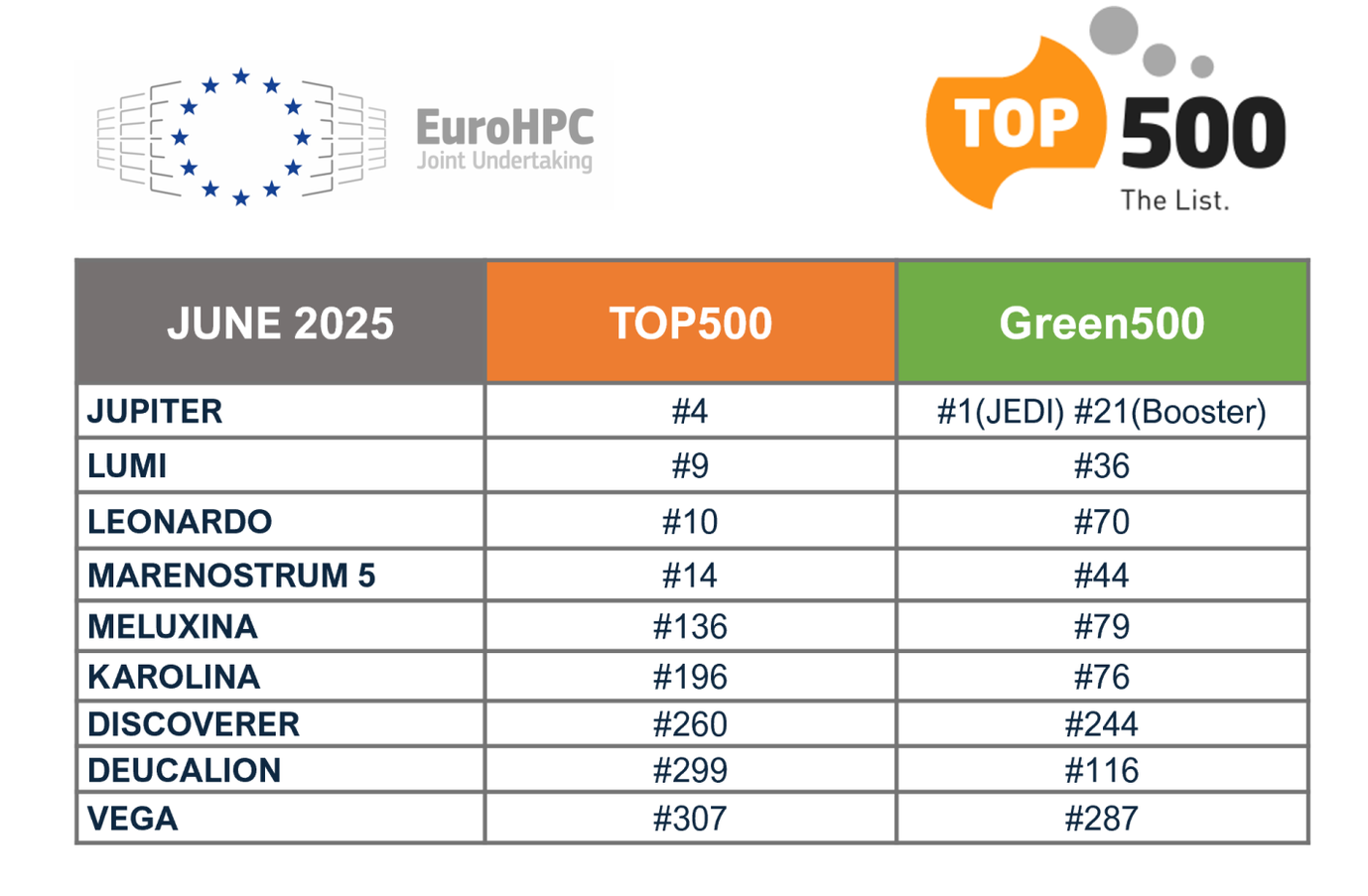The Jupiter supercomputer in Europe has achieved remarkable speeds, placing it fourth among the world’s top-performing computers, as confirmed by EU officials. With over 793 petaflops recorded, Jupiter is still in the process of being fully developed.
The result was unveiled at the International Supercomputing Conference (ISC25) in Hamburg, Germany, Europe’s premier event dedicated to high-performance computing.
‘A Giant Leap’
Jupiter is housed at the Jülich Supercomputing Center at the Forschungszentrum Jülich research facility in Germany, under the ownership of EuroHPC, a collaboration between the EU and private entities aimed at establishing a world-class supercomputing ecosystem.
Jupiter’s capabilities extend to facilitating rapid simulation, training, and inference of large-scale AI models, crucial for various fields such as climate modeling, quantum research, and astrophysics.
Anders Jensen, EuroHPC’s executive director, expressed, “With Jupiter’s extraordinary performance, Europe has taken a significant step forward in the realms of science, technology, and autonomy.”
He added, “Jupiter’s computing prowess will act as a catalyst for scientific breakthroughs, driving fundamental research efforts across the continent in diverse disciplines like climate studies, energy systems, and medical advancements.”

A ranking of the world’s fastest supercomputers in June 2025. Image: European Commission.
Jupiter Supercomputer: Under the Hood
Launched in the latter part of 2024, Jupiter stands as Europe’s fastest supercomputer. It has achieved an initial HPL value of 793.4 Petaflops on an evolving system that is still in progress.
As per the European Commission, Jupiter is poised to become Europe’s inaugural exascale supercomputer, set to handle one quintillion FP64 operations per second.
The system is constructed on Eviden’s BullSequana XH3000 direct liquid-cooled architecture and incorporates close to 24,000 Nvidia GH200 Grace Hopper Superchips interconnected via the Nvidia Quantum-2 InfiniBand networking platform.
Nvidia CEO Jensen Huang stated, “We are developing Europe’s most advanced AI supercomputer to empower leading researchers, industries, and institutions in expanding human knowledge, accelerating breakthroughs, and propelling national progress.”
Ranked among the top five systems in the Top 500 list of the world’s fastest supercomputers, Jupiter was recognized as the most energy-efficient, delivering 60 gigaflops per watt.
Turbo-Charged for AI
ISC25 transpired in Hamburg from June 10-13, where EuroHPC showcased AI factories, HPC systems, and projects to establish Europe as a prominent AI hub.
The European Commission affirmed, “The European Union is resolute in becoming a global frontrunner in AI, positioning itself as a leading AI continent.” This vision hinges on robust digital infrastructure, including substantial computing power and networks.
Nvidia CEO Huang, speaking at the VivaTech conference in Paris, predicted a tenfold surge in Europe’s AI computing capacity over the next two years, with over 20 “AI factories” in development.
Huang emphasized, “Europe has now recognized the significance of these AI factories. AI will revolutionize scientific exploration and industrial progress.”
Open Access
European researchers can request access to Jupiter for their academic pursuits.
The DIGITAL Europe program is actively pursuing the acquisition of Jupiter, aiming to provide Europe’s researchers and industries with substantial computing power, thereby boosting the EU’s AI landscape.